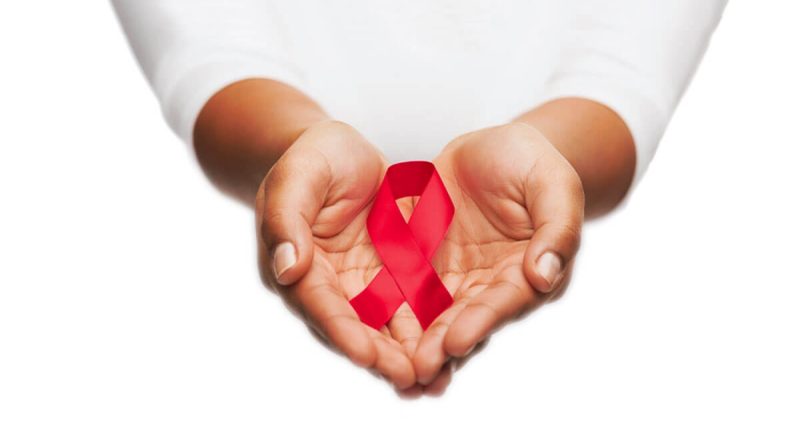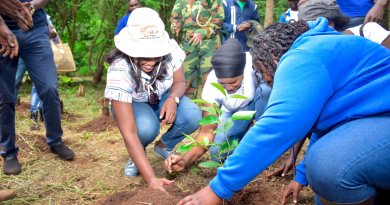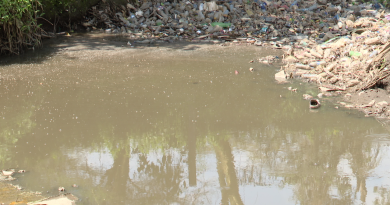Breaking the Silence: Young Women Living with HIV Battling Self Stigma and Discrimination
By Chemtai Kirui | phillykirui@gmail.com
The government is increasing its strategies to tackle the internalized shame that keeps HIV-positive teenagers from health facilities.
For a long time, health officials attributed the high rate of HIV-related deaths among teenagers in Homa Bay County to factors such as poverty and limited access to healthcare services. Now, a crippling, pervasive, and urgent concern has emerged: the social conditioning of teenagers, which prevents them from seeking medical care or confiding in their parents about their conditions.
Self-stigma, an internalized sense of shame experienced by teenagers living with HIV, has contributed to a surge in new infections in the county. In 2022 alone, data from the National Syndemic Diseases Control Council (NSDCC) reported as many as 313 new infections among young people who may not seek care, adding to the national HIV prevalence, which now exceeds 1.4 million cases. This increase in infections has also led to a rise in HIV-related deaths among teenage girls.
According to UNAIDS, in 2022, approximately 8,500 teenage girls lost their lives to HIV, equivalent to one girl succumbing to the disease every hour.
Cintas, an 18-year-old from Rachuonyo, Homa Bay county, had her first sexual experience at 16 with a man twice her age. It was curiosity and peer pressure that motivated her to a path she never envisioned.
Aware that she lived in a county that recorded Kenya’s highest HIV prevalence, Cintas’ asked her partner to join her in undergoing an HIV test at a local clinic.
“He suggested using a self-test kit instead, and I agreed; we ran the tests while apart, and when we met to share the results, I saw only one strip in his testing kit and believed he was negative,” said the teenager.
Three and a half months later, the high school student experienced fatigue and vomiting, leading to a visit to the Kokwanyo Health Center where she received a diagnosis that would mark the beginning of her internal anguish.
“The clinician informed me I was pregnant,” she said, “and HIV positive.”

Despite the availability of comprehensive care, including counselling and free medication at every public health facility for HIV-positive teenagers, Cintas contemplated suicide.
“I wanted to die. I thought of committing suicide, that is what I wanted to do.” Cintas said.
Acting on impulse
Recognizing the need to address emotional as well as medical needs, Kenyan experts in adolescent psychology propose a holistic approach to public health interventions. This approach prioritizes the emotional well-being of individuals, emphasizing the importance of understanding and addressing their emotions rather than solely presenting facts about the dangers of the disease.
A study involving over 5,000 adolescents and young adults worldwide revealed that impulsive behavior often overrides reason and self-control in teenagers, underscoring the critical need for emotional support alongside factual education.
In Kenya, studies have indicated that as many as one in five young people have not only contemplated suicide, but have also developed plans for carrying it out.
With support, Cintas agreed to begin her HIV medication regimen.
HIV medication, known as antiretroviral, reduces HIV virus levels in the blood, fights infections, and decreases the likelihood of HIV transmission. Kenya is one of the three countries on the continent that are nearing the global 95-95-95 target: 95% of people living with HIV know their status, 95% of those who know their status are on treatment, and 95% of those receiving treatment have their viral load suppressed.
Adherence to medication poses a challenge, particularly among teenagers, and often necessitates support from family, friends, and the community.
Dr. Caren Mburu, a pediatrician at the Elizabeth Glaser Pediatric AIDS Foundation (EGPAF), said that individuals from the age of 10 to 19 often struggle to adhere to their ARV treatment.
Mburu, the Technical Lead for Pediatric and Adolescent Services at EGPAF, emphasized that non-adherence to medication, exacerbates the risk of HIV transmission and contributes to what is often referred in the country as the the triple threat— women’s vulnerability to HIV infections, teenage pregnancies and gender-based violence.
“In addition to self-stigma, another danger of not taking medication correctly among pregnant women is the increased risk of maternal-to-child HIV transmission,” Dr. Mburu said.
To tackle self-stigma, the Ministry of Health collaborates closely with non-governmental organizations to implement public health strategies aimed at fostering teenagers’ comfort and confidence in seeking reproductive health care, including for HIV. These measures are designed to address the challenges contributing to self-stigma.
Winnie Ochoro, a Clinical Officer at Kokwanyo Health Centre where Cintas received her diagnosis and medication, described initiatives aimed at reducing wait times and providing specialized support for teenagers. One such initiative is the G-Power, which offers dedicated customer care booths exclusively for teenagers during antenatal care visits.

“The booth allows us to recommend subsequent lab tests and identify HIV cases early,” Clinician Ochoro said.
From these booths, the health facility collaborates with community health promoters to track teenagers and ensure they attend their clinic appointments every two weeks. As a pregnant and HIV-positive teenager, the health facility became one of Cintas’ sources of support.
Mentors
Teachers in Homa Bay County also play a vital role in supporting the teenagers to ensure continuation of care.
Daniel Obondi, a teacher at Saint Thomas Omiro Secondary, said that the school supports teenage mothers in continuing their education even while pregnant.
“After the teen mothers deliver, we encourage them to take breaks in between school hours to go home for breastfeeding and to leave early if need be, to care for their babies.” Mr. Obondi explained.
Surrounded by messages of hope from family, school, and healthcare providers, teenagers like Cintas find the courage to navigate their conditions.
These young women, then end up serving as inspirations, offering invaluable support and guidance to newly diagnosed HIV-positive teenagers.
Susan Otieno is one such woman. She serves as a Peer Mentor at Yala Dispensary, near where Cintas lives.
Drawing from her own experiences surviving teenage pregnancy, Susan connects with teen mothers who have just been diagnosed with HIV and are pregnant, offering them advice and guidance for their journey.

“Young women who are pregnant and HIV-positive need someone who can speak the same language as them, to talk with them without judgment, to encourage them to go back to school, and adhere to their medicine,” Susan said.
HIV, teenage pregnancy, and gender-based violence present complex public health challenges that require multifaceted approaches. By addressing emotional as well as medical needs, Kenya health system aims to reduce self-stigma, discrimination and improve outcomes for HIV-positive teenagers.
Cintas eventually disclosed her HIV status to her parents, finding support and encouragement from her mother.
“My mother embraced me and has been my support system while navigating my situation,” Cintas shared.
With newfound support, she gave birth to a healthy daughter.
“Thanks to the support I received from the health facility and peer mentors, my child was born without HIV, and I am also healthy,” said Cintas as she held her eight-month-old daughter.
The teenager, who aspires to become a lawyer, returned to school.
Kass Media has hidden the identities of the teenager in the story for her protection in adherence to the anonymity guidelines.
This reporting was supported by the International Women’s Media Foundation’s Howard G.
Buffett Fund for Women Journalists.




